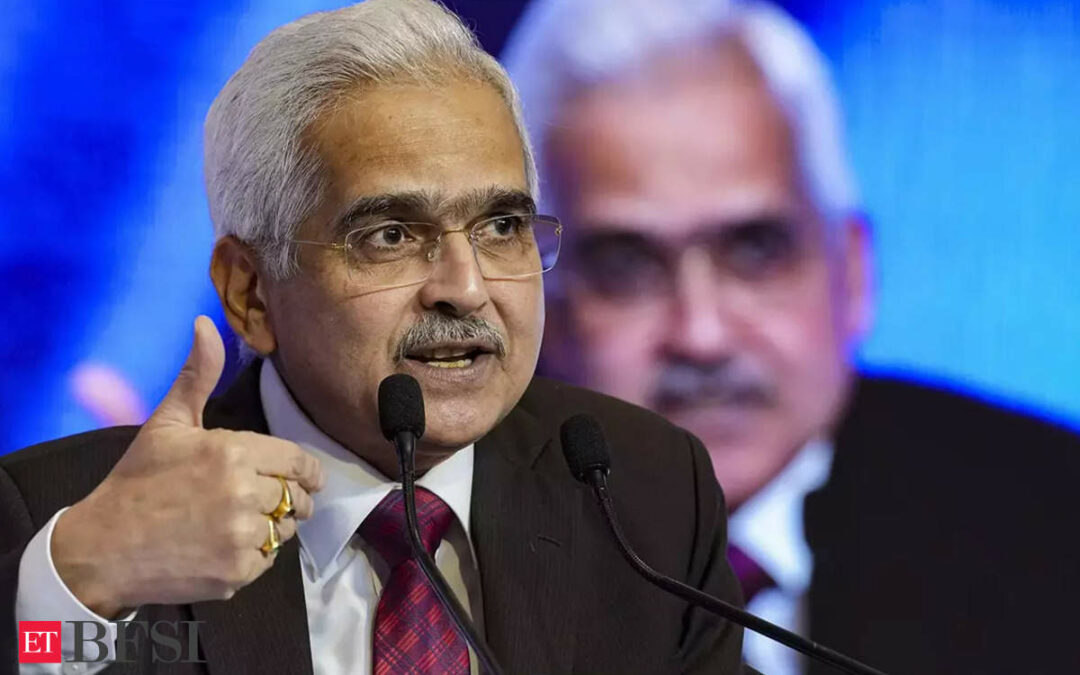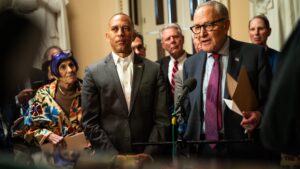The Reserve Bank of India last revised the repo rate in February 2023, making it 6.50%, increasing by 25 basis points and it has since remained unchanged. In contrast, the US Federal Reserve has indicated the possibility of lowering interest rates in the near future.
RBI Governor Shaktikanta Das on Friday said that the persistent ‘higher for longer’ interest rate environment has exposed financial stability risks, as seen in the March 2023 banking sector turbulence in some advanced economies. Tight financial conditions strained bank balance sheets in these jurisdictions.
“Market expectations of rate cuts are gaining momentum, particularly after signals from the US Fed regarding a potential policy pivot. However, the risks from a prolonged ‘higher for longer’ interest rate scenario remain significant,” Das stated.
He added that some central banks remain cautious, avoiding premature policy easing until inflation is durably controlled. These central banks must balance domestic inflation and growth carefully when making policy decisions.
Global Financial Risks
Das emphasised the interconnected nature of current global risks, including slowing disinflation, high debt levels, geopolitical tensions, trade policy uncertainties, and climate change.
“These risks are becoming increasingly interdependent, with changes in one often shifting expectations for others. This makes it crucial for policymakers and central banks to stay agile and implement forward-looking structural measures to mitigate these risks,” Das explained.
He also warned that persistent inflation could delay the return to price stability, heightening external, fiscal, and financial risks. In this context, central banks must adopt prudent monetary policy measures, while governments should proactively implement supply-side reforms.
What could be the monetary policy pivot?
Looking ahead, Das suggested that the probability of a monetary policy pivot with a soft landing raises hopes for a sustained global inflation decline.
“If global inflation moderates, this would create room to strengthen growth foundations, reduce input costs, and revitalize labor markets. For emerging market economies, this presents an opportunity to leverage robust fiscal, monetary, and financial frameworks to attract investment and drive sustainable growth,” he said.
Das also said that this phase presents an opportune moment for emerging economies to consolidate post-pandemic gains through deeper structural reforms in product and factor markets.
“The current system, despite facilitating decades of economic expansion, faces growing challenges from imbalances, such as the over-reliance on a few currencies in global trade and finance. Reforms should address these imbalances, increase emerging economies’ participation in global financial governance, and strengthen the global financial safety net (GFSN),” Das remarked.
Addressing the state of the Indian economy, he said that, according to RBI’s projection, inflation will ease from 5.4% in 2023-24 to 4.5% in 2024-25 and further to 4.1% in 2025-26. Additionally, fiscal consolidation is underway, and public debt levels are expected to decline over the medium term.
Shaktikanta Das, Governor, Reserve Bank of India was speaking at the third annual conference of the Bretton Woods Committee’s Future of Finance Forum held in Singapore.











